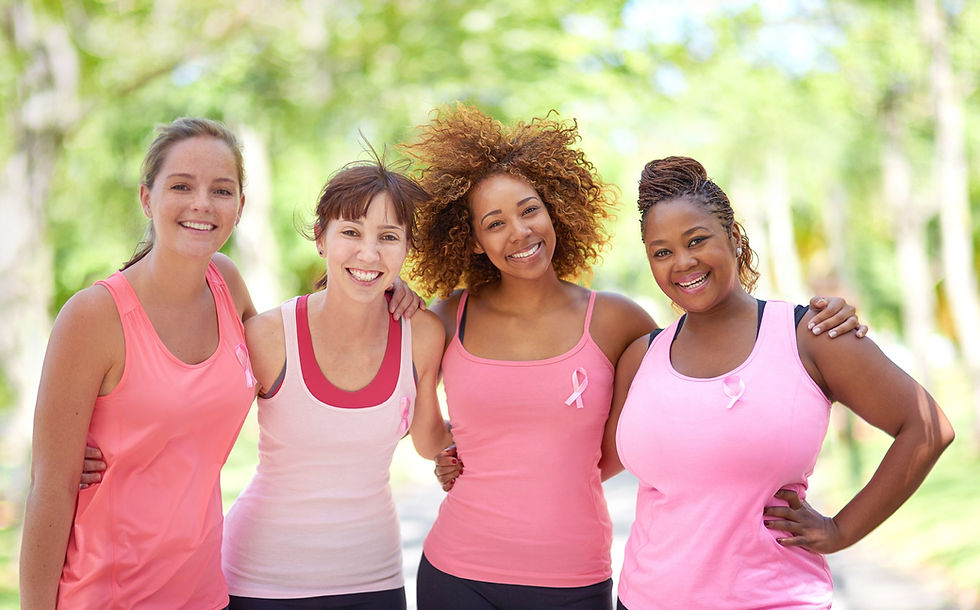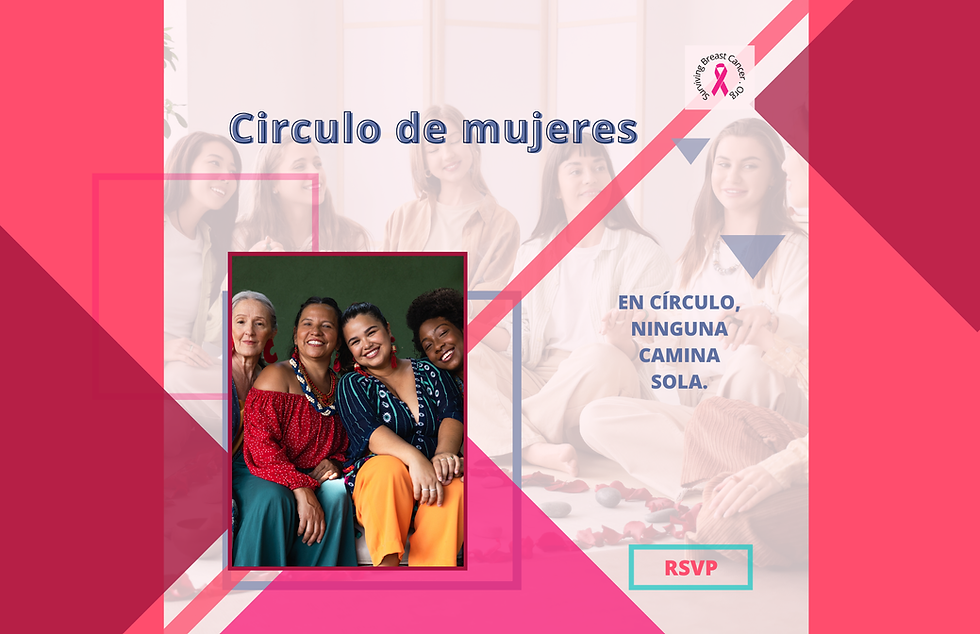Breast Cancer in Your 20s
- Surviving Breast Cancer

- Aug 7, 2022
- 3 min read
Updated: Aug 18, 2025
A breast cancer diagnosis is hard news at any age, but being diagnosed in your 20s can be uniquely challenging.

For young, otherwise healthy women, it can be especially difficult to accept that this truly can happen to anyone. Since women in their 20s and 30s account for less than 5% off all breast cancer cases, it can feel especially lonely and more difficult to connect with other survivors the same age. Additionally, for many young women who may have still been planning to have kids, fertility becomes another concern. If this is a concern for you, two of our past podcasts that specifically address fertility preservation and egg retrieval may be of interest. In the articles and conversations below, young women share their experiences with breast cancer diagnoses in their 20s, and doctors provide advice about early detection and treatment.
Triple Positive Breast Cancer Under 30 (SurvivingBreastCancer.org)
In a recent episode of our podcast, Tabby shared with Laura her experience of being diagnosed with breast cancer in her 20s.
Triple Positive Breast Cancer Under 30 bring about a unique set of experiences. No one expects to get cancer, let alone, in your 20s. Tabby shares her experience being triple positive (ER/PR HER2+) and how she managed side effects of her chemotherapy regiment. She brings a positive light to a dreadful disease and we can all learn from her realistic optimism. Read More.
Too Young to Screen: Breast Cancer in Younger Women (Yale Medicine)
If you’re under age 40, which is when it’s recommended that women begin having screening mammograms, you may think you are too young to get breast cancer—but that’s not true. While breast cancer in younger women is rare, it is the most common cancer among women ages 15 to 39.
“While breast cancer is most typically diagnosed in post-menopausal women, this is a condition that can and does happen in young women, too,” says Yale Medicine radiologist Liva Andrejeva-Wright, MD, who specializes in breast imaging.
Even if you are too young for regular mammograms, it is still important to be "breast aware" to potentially detect cancer early on. While there’s no way to predict who will get breast cancer, some factors put women at higher risk at a younger age. Breast cancer risk is higher in women with a family history (a mother or sister) of breast or ovarian cancers at a young age or who have an Ashkenazi Jewish heritage. Having had radiation therapy in the chest (for instance, for lung cancer treatment) is another important risk to know about. Read More.
In this article from The Cut, a young woman shares her experience of being diagnosed with breast cancer at age 28. When she first noticed the lump, she figured it couldn't be breast cancer at her age, but because of the pain she decided she needed to talk to a doctor about it. After her diagnosis, she recalls a lot of shock and denial.
"From the day I got my diagnosis until the end of treatment, I didn’t really cry; I was in this state of permanent of disassociation, this prolonged out-of-body experience. I probably didn’t go longer than a minute for the first month without asking someone in the vicinity if I was going to die. They sent someone into my hospital room one day to help me draft up my will; I picked out what I wanted on my grave; I had to think about potential palliative care. And I was so reluctant to do any of it, because there was no part of me that was at peace with dying so young; I was really angry." Read More.
If Something Is Off, Get It Checked Out (SurvivingBreastCancer.org)
Rebecca, who was diagnosed at age 27, recently shared her story with us on the blog. As a healthy, active young woman with no family history of breast cancer, she never expected to be diagnosed with breast cancer.
After painful symptoms that lasted for over a year and were initially dismissed by her doctor, she decided she needed to get a second opinion. She encourages others to get a second opinion if they believe there is something wrong. Along with her doctor, she has opted for a double mastectomy and reconstruction. And, now a medical student, she's not letting her diagnosis stand in the way of her dream of becoming a doctor herself! Read More.














